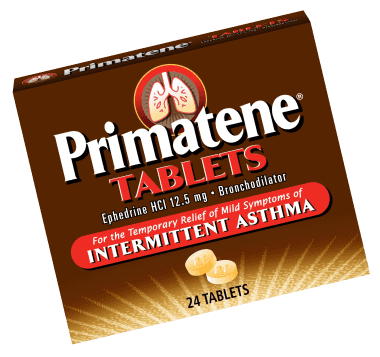Whether intermittent or severe, asthma is a serious disease that affects the way you breathe and should be diagnosed by a physician. Coping with asthma can be difficult and frightening, especially if emergency care is needed. Asthma sufferers may have concerns about medications, the symptoms they treat and their proper use. Asthmatics and their families need to be informed about when to see a doctor for diagnosis and treatment, how to best treat asthma at home, how to prevent asthma episodes, and how to monitor physical activities. In addition, parents of asthmatic children need to be able to communicate effectively with their child's doctor, teachers, principal, and other school personnel.
Frequently asked questions
Questions about bronchial asthma? Here are answers to the most frequently asked queries.
About Asthma
-
-
Working with a doctor to help reduce your intermittent or severe asthma can help with all the below:
- Reduce asthma symptoms such as coughing, wheezing or shortness of breath at night, the early morning, or after exertion
- Reduce the number of asthma episodes or attacks
- Prevent emergency visits to doctors and hospitals
- Reduce the need for quick-relief therapy
- Better ability to participate in physical activity and exercise without problems
-
With the passage of the CARES Act in 2020 the makers of Primatene Tablets were required to remove guaifenesin from the product. The new Primatene Tablet formula still contains Ephedrine HCl, a powerful bronchodilator that is safe and effective for relief of mild symptoms of intermittent asthma.
-
Asthmatics have inflamed and thus overly sensitive airways, i.e., the tubes that carry air in and out of your lungs. Common things that cause little or no trouble for most of us can leave people with asthma struggling for breath. Asthma symptoms occur when the lining of the airways swell and the muscles around them tighten. Typical symptoms of asthma include wheezing, coughing, tightness of the chest, and feeling short of breath.
Certain substances or conditions can set off or worsen asthma symptoms. These are called asthma triggers and knowing what they are can help people avoid them, better manage their asthma and decrease or prevent asthma episodes.
Asthma triggers vary from person to person and fall into the following overall categories:
Allergic Triggers
Substances that cause allergies (allergens) can trigger asthma. Common airborne allergens include:
- Pollen
- Mold spores
- Pet/animal dander (flakes from the skin, hair, or feathers of any warm-blooded pet, including dogs, cats, birds, rodents, and horses)
- Dust mites (from microscopic insects present in house dust)
- Particles of cockroach waste
Environmental Triggers
- Smoke from cigarettes
- Air pollution such as smog, ozone, etc.
- Wood fires and charcoal grills
- Strong fumes, vapors or odors (such as paint, gasoline, perfumes, and scented soaps)
- Dust and particles in the air
- Chemicals (incl. workplace irritants such as chemical fumes, gases, or dust)
Asthma Triggers related to Exercise, Weather, Health Conditions, Medications and Food Additives
- Exercise – especially in cold and dry air
- Sudden changes in weather/air temperature
- Respiratory infections, such as the common cold
- Gastroesophageal reflux disease, causing stomach acids to back up into your throat
- Strong emotions and stress
- Certain medications, including beta blockers, aspirin, and nonsteroidal anti-inflammatory drugs (e.g., ibuprofen [Advil, Motrin IB, others] and naproxen sodium [Aleve])
- Sulfites and preservatives added to some types of foods and beverages, including shrimp, dried fruit, processed potatoes, beer, and wine
Discuss with your doctor how to identify the asthma triggers that affect you, and determine which actions are going to be most helpful in reducing your asthma symptoms.

Savings are right around the corner
See the latest deals on Primatene Tablets
